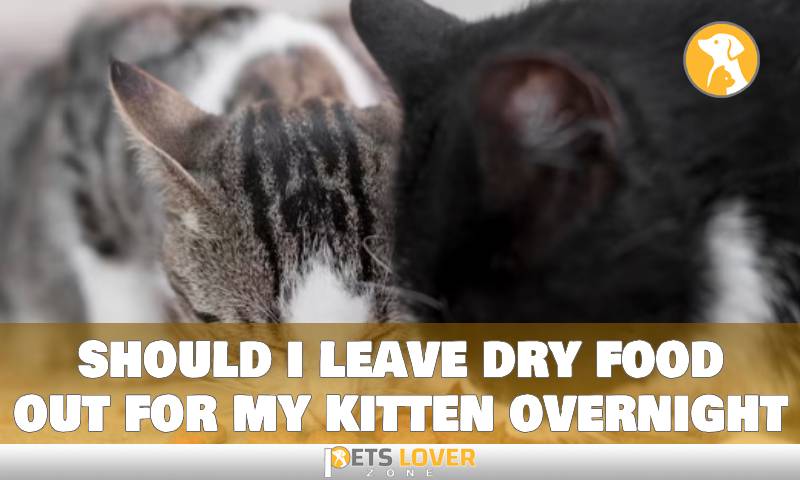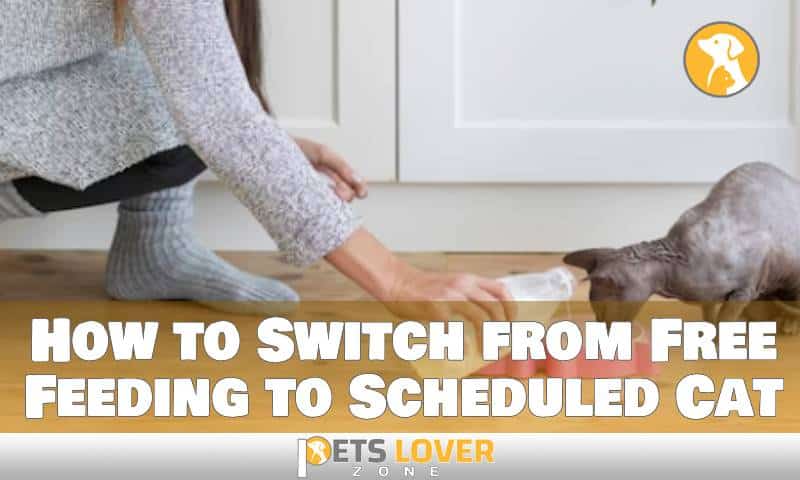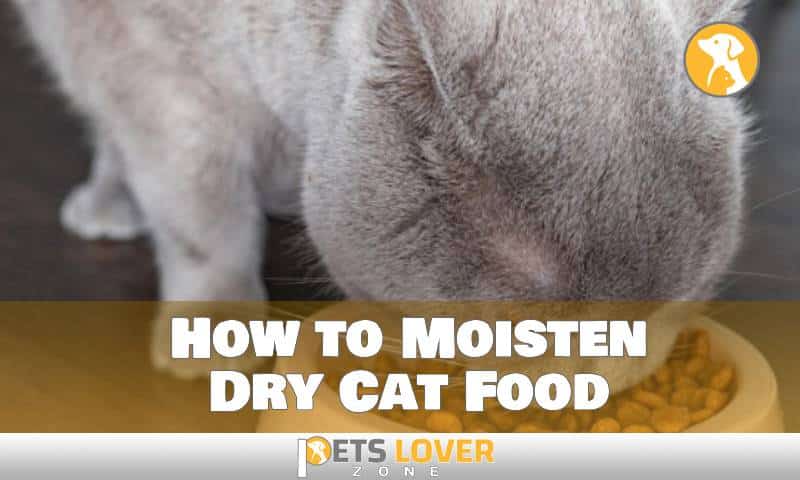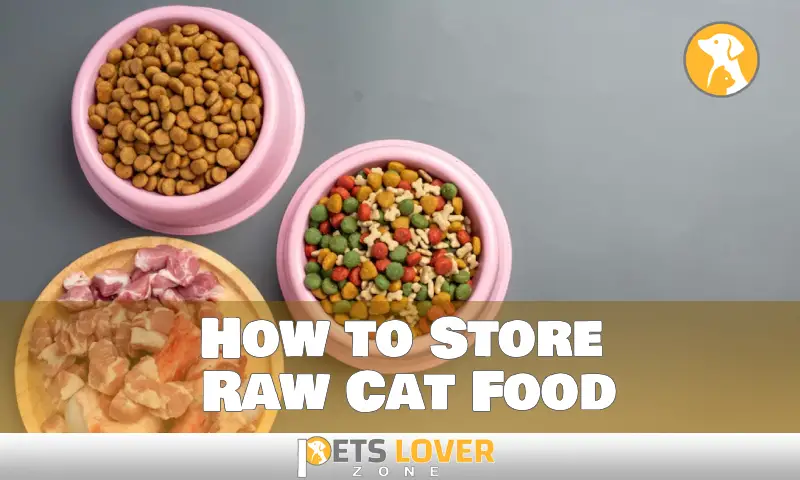No, it is not advisable to leave dry food out for your kitten overnight, as it can attract pests and go stale. Leaving dry food out can also lead to overeating and obesity in kittens.
It is best to follow a regular feeding schedule and provide fresh food each time to ensure your kitten’s health and well-being.
Importance Of A Proper Feeding Schedule For Kittens
Feeding your kitten on a regular schedule is essential for their overall health and development. By establishing a consistent feeding routine, you can ensure that your furry friend gets the nutrition they need at the right time. Here are a few key points to consider:
- Kittens have small stomachs: Due to their small size, kittens require smaller and more frequent meals compared to adult cats. Their stomachs cannot hold large amounts of food, so it’s important to feed them multiple times a day.
- Avoid free-feeding: Leaving dry food out for your kitten overnight may seem convenient, but it can lead to overeating and obesity. Instead, establish set meal times to monitor their portion sizes and prevent excessive weight gain.
- Promotes healthy digestion: By sticking to a regular feeding schedule, you can help regulate your kitten’s digestion. Consistent mealtimes allow their bodies to better process and absorb nutrients from their food.
- Encourages an appetite: Feeding your kitten at consistent intervals helps stimulate their appetite. Hunger cues are easier to recognize when their feeding times remain the same each day.
- Bonding opportunity: Feeding your kitten at regular intervals not only provides them with nourishment but also an opportunity for bonding and interaction. It allows you to build trust and establish a routine with your feline companion.
The Significance Of Consistent Mealtimes For Their Development
Consistency is key when it comes to feeding your kitten. By maintaining a stable feeding schedule, you provide them with the necessary structure for their growth and development. Here’s why consistent mealtimes are essential:
- Healthy growth and weight management: A consistent feeding routine ensures that your kitten receives the appropriate amount of food necessary for their growth. It helps prevent overeating and weight issues, which can lead to health problems later on.
- Development of good habits: Regular mealtimes teach your kitten discipline and proper mealtime behavior. They learn to associate specific times with food, promoting a well-behaved and balanced lifestyle.
- Predictability and security: Kittens thrive on consistency and routine. By feeding them at the same times every day, you create a sense of predictability and security, reducing stress and anxiety.
- Establishes household routine: A feeding schedule not only benefits your kitten but also helps you establish a routine in your household. It allows you to plan your day accordingly and ensures that your kitten’s needs are always met.
How Kittens’ Nutritional Needs Differ From Adult Cats
It’s important to understand that kittens have unique nutritional requirements that differ from those of adult cats. Here are some key factors to consider when feeding your growing feline:
- Higher energy needs: Kittens are highly active and require more energy to support their growth and exploration. They need a diet that is rich in calories, proteins, and fats to meet their energetic demands.
- Increased protein intake: Protein is crucial for a kitten’s growth and development. Their bodies require higher amounts of protein to support muscle growth, organ development, and overall health.
- Adequate fat intake: Healthy fats are essential for a kitten’s brain development and energy source. Look for kitten-specific diets that provide the right balance of omega-3 and omega-6 fatty acids.
- Essential nutrients: Kittens need essential vitamins and minerals to support their growing bodies. Ensure their diet includes appropriate amounts of vitamins A, D, and E, as well as calcium and phosphorus for strong bones and teeth.
- Hydration: Kittens have a higher water requirement compared to adult cats. Wet food or a combination of wet and dry food can help ensure they stay hydrated.
Remember, consulting with your veterinarian is always recommended to ensure you’re providing your kitten with the appropriate nutrition for their age and individual needs.
Pros And Cons Of Leaving Dry Food Out Overnight
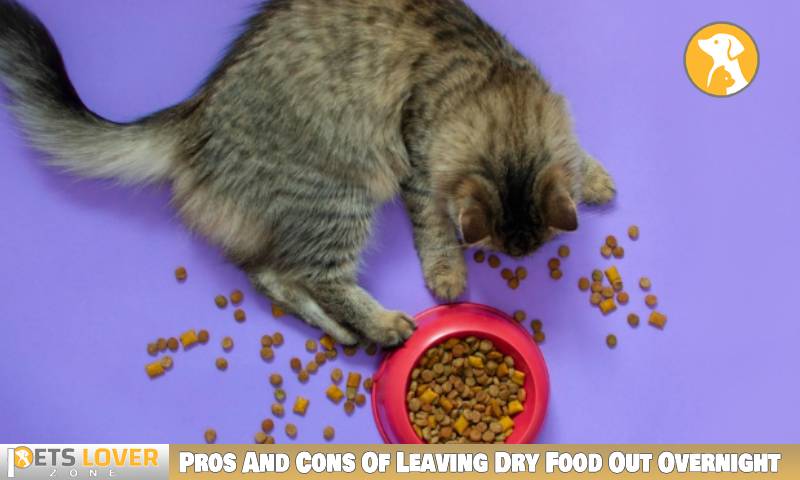
The Convenience Of Free-Feeding Dry Food For Busy Pet Owners
Being a responsible pet owner means making sure our furry friends are well taken care of, even when our schedules are jam-packed. When it comes to feeding our kittens, leaving dry food out overnight can offer certain benefits:
- Convenience: Leaving dry food out allows your kitten to eat whenever they please, without having to stick to a strict feeding schedule. This can be particularly helpful for pet owners who have busy work lives or irregular schedules.
- Accessibility: Some kittens may prefer to nibble on their food throughout the day, rather than devouring a set portion all at once. By leaving dry food out, you ensure that your A kitten always has access to a fresh meal, which can be especially beneficial for picky eaters.
- Reduced stress: Kittens can become anxious or restless if they’re unable to satisfy their hunger. Leaving dry food out overnight helps alleviate this, as they know they can always find food when they need it. This can be especially useful if you have multiple cats, as it minimizes competition for food resources.
Potential Risks And Drawbacks Of Leaving Dry Food Out Overnight
While free-feeding dry food may seem convenient, there are a few considerations to keep in mind before deciding to leave food out overnight:
- Spoilage: Leaving dry food out for extended periods can expose it to air, moisture, and other contaminants, leading to potential spoilage. This can impact the freshness and nutritional value of the food, potentially causing digestive issues for your kitten.
- Insects and pests: Open food bowls can attract insects and pests, such as ants or mice, which can contaminate the food and pose health risks to your kitten. Ensure you have proper storage containers or methods to prevent unwanted visitors.
- Overeating and obesity: Leaving dry food out 24/7 eliminates portion control and can lead to overeating. Some kittens may lack self-regulation when it comes to food consumption, resulting in excessive weight gain and potential health issues such as obesity or diabetes.
- Loss of appetite monitoring: By leaving food out constantly, it becomes challenging to monitor your kitten’s appetite. Changes in eating habits and sudden loss of interest in food can be early signs of underlying health problems. Regular feeding times allow you to keep track of your kitten’s eating patterns more effectively.
While free-feeding dry food can be convenient for busy pet owners and offer accessibility and reduced stress for kittens, it’s essential to be aware of the potential risks and drawbacks. Balancing convenience with proper portion control and monitoring your kitten’s appetite is crucial for their overall health and well-being.
Consider consulting with your veterinarian to determine the best feeding regimen for your furry friend.
The Best Approach: Scheduled Meal Times Vs. Free-Feeding
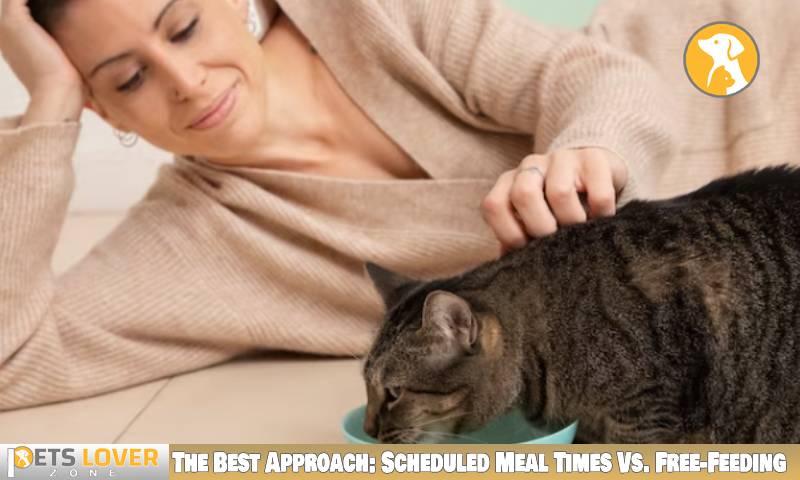
Kittens have unique dietary needs, and it’s important to establish a feeding routine that promotes their health and well-being. When it comes to feeding your kitten, two commonly used approaches are scheduled meal times and free-feeding. In this section, we will discuss the benefits and drawbacks of scheduled meal times for kittens, as well as the importance of monitoring portion sizes for controlled growth.
Additionally, we will explore how combining scheduled meals with interactive feeding toys can provide both physical and mental stimulation for your furry friend.
Benefits And Drawbacks Of Scheduled Meal Times For Kittens
Scheduled meal times offer several advantages when it comes to feeding your kitten. Let’s take a look at some key points to consider:
- Controlled portion sizes: By feeding your kitten at specific times throughout the day, you have better control over their portion sizes. This is especially crucial for growing kittens to prevent overeating and obesity.
- Consistent feeding routine: Establishing a regular feeding schedule helps to regulate your kitten’s metabolism and can contribute to better digestion. It also helps to create a structured routine for your kitten’s daily activities.
- Monitoring eating habits: With scheduled meal times, it becomes easier to keep track of your kitten’s eating habits. This enables you to identify any changes in appetite or potential health concerns early on.
- Bonding opportunity: Feeding your kitten at specific times allows you to establish a routine and bond with them during mealtime. This can help strengthen the bond between you and your furry companion.
While scheduled meal times offer many benefits, there are also some drawbacks to consider:
- Limited food availability: Unlike free feeding, where food is available at all times, scheduled meal times mean that food may not be accessible throughout the day. This may not be suitable for kittens who have a higher energy expenditure or who are picky eaters.
- Possible hunger between meals: Kittens have small stomachs and may feel hungry between meals if they are accustomed to free-feeding. This can be managed by providing stimulating activities or toys to keep them occupied during non-feeding times.
Importance Of Monitoring Portion Sizes For Controlled Growth
Controlling portion sizes is crucial for ensuring healthy growth and development in your kitten. Here are some key points to keep in mind:
- Preventing overeating: By providing controlled portions, you can prevent your kitten from overeating, which can lead to obesity and related health issues. It’s important to follow the feeding guidelines provided by your veterinarian or pet food manufacturer.
- Supporting growth: Controlled portion sizes ensure that your kitten receives the right amount of nutrients to support their growth. This is particularly important during the first year of their lives when they experience rapid development.
- Avoiding underfeeding: On the other hand, it’s equally important to monitor portion sizes to ensure that your kitten is getting enough food. Underfeeding can result in malnutrition and stunted growth. Always consult your veterinarian if you are unsure about the appropriate portion sizes for your kitten’s age and weight.
Combining Scheduled Meals With Interactive Feeding Toys For Stimulation
To make mealtime more engaging and mentally stimulating for your kitten, consider incorporating interactive feeding toys into their routine. Here are a few reasons why this can be beneficial:
- Enrichment and mental stimulation: Interactive feeding toys provide a fun and challenging way for kittens to access their food. This can help prevent boredom and encourage natural hunting behaviors, keeping their minds active and engaged.
- Slow down eating: Some kittens tend to eat too quickly, which can lead to digestive issues. Interactive feeding toys, such as treat-dispensing puzzles or slow-feeders, can help slow down their eating pace, promoting better digestion.
- Physical exercise: Engaging with interactive feeding toys often requires physical activity, helping your kitten burn off excess energy and stay fit. This is especially important for indoor kittens, who may have limited opportunities for exercise.
By combining scheduled meal times with interactive feeding toys, you can provide both physical and mental stimulation for your kitten while ensuring controlled portion sizes.
Remember, it’s always best to consult with your veterinarian for personalized feeding advice based on your kitten’s age, breed, and overall health.
FAQ
Should I Leave Dry Food Out For My Kitten Overnight?
Yes, it’s recommended to leave a small amount of dry food out overnight for your kitten. This allows them to eat when they’re hungry and helps regulate their metabolism.
How Often Should I Feed My Kitten Dry Food?
Ideally, you should feed your kitten dry food three to four times a day. This ensures that they get the nutrients they need throughout the day and helps prevent overeating.
Can I Leave Wet Food Out For My Kitten Overnight Instead?
While it’s possible to leave wet food out for your kitten overnight, it’s not recommended. Wet food can spoil quickly and may attract insects or cause digestive issues for your kitten. It’s best to stick with dry food for overnight feedings.
Conclusion
To conclude, it is generally not recommended to leave dry food out for your kitten overnight. Although some pet owners may find it convenient, there are several potential drawbacks to consider. Firstly, leaving food out for extended periods can lead to bacterial growth and potential health risks for your kitten.
Additionally, free-feeding can make it difficult to monitor your kitten’s eating habits and prevent obesity. It’s crucial to provide timed meals to establish a regular feeding routine and promote healthy growth. Furthermore, leaving food out overnight can also attract pests and insects, creating an unsanitary environment for your furry friend.
Instead, opt for scheduled feedings and measure out appropriate portions to ensure your kitten receives the appropriate nutrition. Remember, consulting with your veterinarian is always recommended for tailored feeding advice and to address any specific concerns you may have for your kitten’s health and well-being.

